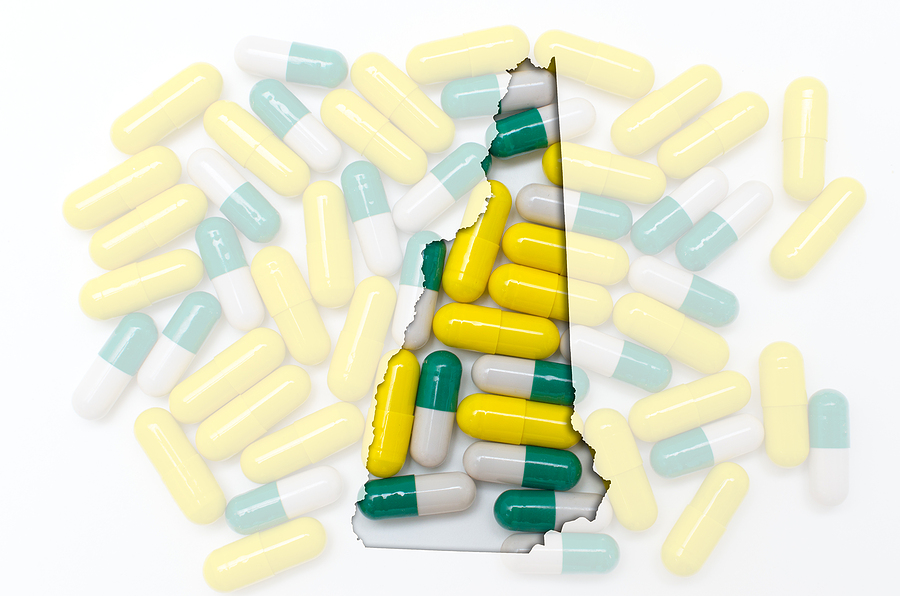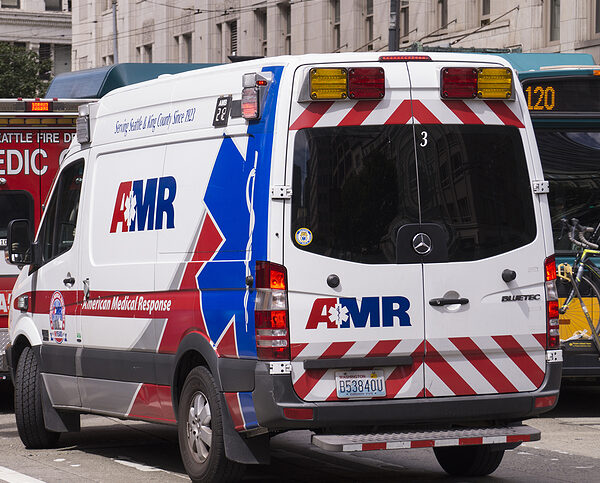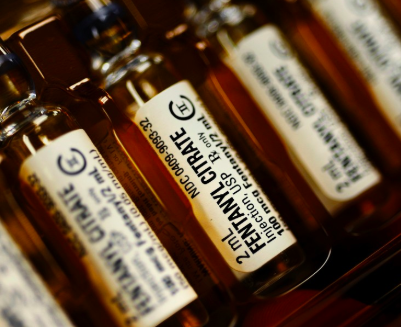After Years of Losing Opioid Fight, NH Now Among Lowest States for Drug Use

One of Donald Trump’s first political successes was his embrace of the opioid addiction issue in New Hampshire during the 2016 campaign. Long overlooked, the scourge of addiction was hitting working-class Americans hard, with the Granite State suffering more than 300 drug overdose deaths in 2015.
In 2018, the data analysts at WalletHub ranked New Hampshire as having the third-highest drug use rate in the U.S.
But a decade after Trump came down the golden escalator and helped raise the profile of the opioid issue, New Hampshire’s fortunes have reversed. The latest WalletHub report, released Wednesday, ranks New Hampshire 11th best overall in terms of its drug problem. The report looks at factors like recovery availability, law enforcement efforts, and rates of addiction. Hawaii, Utah, and Nebraska were in the top three for states doing well, while New Mexico, West Virginia, and Nevada have the most dire drug addiction problems according to the report.
“I think we’re doing significantly better,” said Chris Stawasz, regional director with ambulance company American Medical Response.
Only one New England state, Connecticut, has a lower rate of drug abuse than New Hampshire. Massachusetts and Maine rank 26th and 27th, respectively; Rhode Island comes in at 28th, and Vermont is last in the region at number 32.
Stawasz, who has been collecting and publishing overdose data from the cities of Manchester and Nashua for years, said data from this year is already showing a major improvement.
“Nashua and Manchester are at half of where we were a year ago, and statewide it’s down as well,” Stawasz said.
Part of the credit goes to state government, where Gov. Chris Sununu led a bipartisan effort to make treatment more readily available to Granite Staters. Mental health and confronting addiction have been among a handful of issues where, despite some differences in approach, support for solutions has been strong on both sides of the aisle.
As a result, New Hampshire ranks 48th among states with adults whose drug-treatment needs are unmet, WalletHub reports.
In Manchester, which has been ground zero for the Granite State’s battle with addiction, Mayor Jay Ruais — who has struggled with his own addiction issues — says the battle has been hard fought. But, he told NHJournal, the results are undeniable as the number of fentanyl overdoses and deaths continues to decline.
“Trend lines have been extraordinarily clear,” Ruais said.
Stawasz will release numbers for the first quarter of 2025 within the next few days, but he said Manchester and Nashua have seen at least a 50 percent reduction from the first quarter of 2024. The projections for the total 2025 number of overdoses and deaths could be their lowest in at least a decade.
Getting from the worst of the opioid crisis to the recovery being seen today takes a combination of different people and agencies working on different aspects of the problem, Stawasz said.
“I can’t point to one specific item. There’s a lot of effort going into the recovery, prevention, and law enforcement.”
Focusing police agencies on busting fentanyl dealers and stopping the traffic of drugs coming up from Massachusetts has been a big part of the recent success, Stawasz said. Ruais said police are a major component of Manchester’s success in combating the epidemic, along with the city’s Rapid Overdose Assessment and Response (ROAR) Team, assembled to deal with different aspects of addiction.
“This is an entirely collaborative effort,” Ruais said.
Now, the ROAR team can redouble efforts and hopefully get ahead before there is a next wave, Ruais said. The city can start looking more at prevention, targeting efforts to schools and youth in the city to keep them away from drugs.
“We can further reduce these numbers so that a person never gets into an addiction,” he said.









